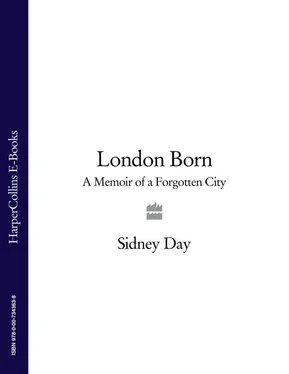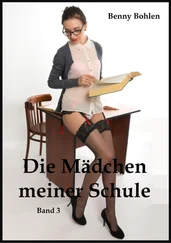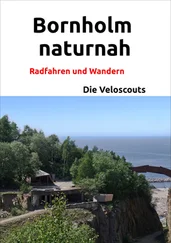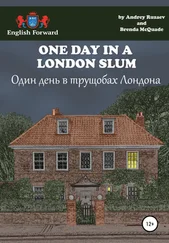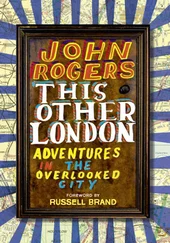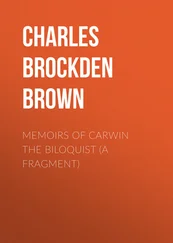Me gran was always in and out of our house or me mum would go up the road to her house. We always shouted out when we passed her sitting on her step. Sometimes she would send me for a jug of black beer and I would drink a drop on the way back. She was a little old Spanish woman with a long black plait down her back. I don’t think I knew her name—we just called her Gran. She was always in black. Her skirt was tight round her waist and it come out down to the floor. She looked like a little tent walking round. Lots of women wore those long dresses dragging the ground and they got filthy at the bottom. Me gran was a nice old lady. Mind you, if you was cheeky to her she slapped you round the ear’ole—bang!—no arguments. She was very strict.
When the war started hotting up we all traipsed down to the tube station and slept on the platform every night. Everybody in the street went down there. Cor blimey, it stunk like merry hell with all the drunken old sods, stunk terrible. The only good thing about it was it was nice and warm. When they knew there was going to be an air raid the fire engine went along the top of the road sounding the sirens. It was a cart with a big tank in the middle and a big pump on it, drawn by horses. When they blew the old bugle you knew there was an air raid coming. Once I seen a fleet of German airplanes come low across over our house, flying in the shape of a tick.
There weren’t a lot of bombing but I can remember four bombs. The very first one hit Highgate Hospital. It landed right on the big iron gates. The gatekeeper weren’t there so nobody got killed—it just blew the gates away. The next one was at the foot of Parliament Hill Fields as you enter from West Hill. We used that one as a swimming pool when it got full up with water. Another fell not far from the Highgate ponds.
The fourth bomb was dropped near the gun on the top of Parliament Hill. It practically landed on me Uncle Fred who ran a gun called Big Bertha. A little dog, a whippet, ran into the fenced off area round the gun during that air raid. Nobody claimed it so me uncle bought it down to our house. He would often come over with some food for us. You could walk it in a quarter of an hour.
Me mum says to him, ‘Ooo he’s a lovely little boy, ain’t he?’
He says, ‘It ain’t a boy it’s a gel. Do you want her?’
‘Yeah, I’ll have her, lovely little dog.’
‘Alright, Dinah. Take her on.’
So we got the dog. Mum called her Nel and kept her for fourteen years. She was me mother’s water bottle. She used to get into the bed and wiggle her way down to the bottom and the old gel would put her feet on her of a night time.
We always had two or three dogs living with us. I had a Bull Terrier, but I don’t know if I ever give him a name. I had him a couple or three years but then he strangled hisself with his tether in the garden. We had another little dog, a black and white Jack Russell, and he could pick a penny up off the floor when you threw it down for him. That wants some doing for a dog. Me favourite dog was called Babs. She was an Airedale with a lovely brown and black coat, all tight curls, a lovely dog. Sometimes I took three dogs out at a time over Parliament Hill Fields. In the war it was a training ground for the Army. I seen many two-wheel gun carriages tip arse over head there. They come flying down the hill pulled by four horses, as fast as they could go. When the carriage tipped over the soldiers would put it back on its wheels and off they would go again, round and round.
All the men was away in the war. Me dad was in the Army. He served the whole length of the war in the Royal Artillery, driving the horses that pulled the guns. That was how he got the name Driver Day. He was short and well built with brown hair and he was covered all over with tattoos. His nose was spread across his chops from fighting. When he had leave from the Army he would come home, straight out of the trenches, mud everywhere, filthy. The poor old bugger had puttees wrapped round his legs up to his knees and the mud was all caked in where they hadn’t been taken off for weeks and weeks. His legs looked like ladders from the marks round them made by the ties.
When me mum said Dad was coming home, Jim and me would wait for him at the top of our road. He was always glad to see us. He brought these great big dog biscuits for us called ‘iron rations’ and we liked to eat them. Mind you, they was only nice cause we had nothing else. You had to have a hammer to break the bleeding things.
Me dad was out in the front line for years in France. He was fit as a fiddle and a keen old fighter. When it was peaceful they put up boxing rings and he would organise boxing exhibitions. He was popular—anybody who done a lot of sport in the Army always got on. As well as boxing they larked about in the trenches, gambling for cigarettes, and sometimes, he told me, they would go into farms, nick a pig, take it back to the trenches and roast it. When a horse got shot in battle, as soon as it was down and out, they would carve it up with their bayonets and eat that as well.
While me dad was away, me mum had to keep the seven of us on rations. I would go round and get food from Bucking-ham’s shop. Mum would say, ‘Take the cup with you and get an haporth of jam, a pennorth of sugar, a bit of tea, a tin of evaporated milk and a lump of margarine.’ We hardly ever see any meat.
The war ended and me dad come home. After he got gassed in France he never could breathe through his nose properly again. Sometimes he was in so much pain with his nose he would come home from work at dinner time and put his head over a bowl of hot salt water and sniff it up. That was the only way he could shift it.
Me mum’s brother, Bob, who lived right opposite us, was much worse off. He lived with his wife Ginny and their kids. He was a typical looking Spanish man if ever there was one —sharp featured and sticking out black hair. His face always looked black from wanting a shave, what was left of it. He had half his jaw blown off in the war. For a pension he got the big amount of two and sixpence a week. The poor old bugger only had half a jaw and looked a sight but he got used to it at the death. He still knew how to drink a pint of beer.
The men went back to work, if they could find work. On every street corner there was gangs of men chinwagging cause they didn’t have the money to go for a pint. It was hard to get a proper job and that was why so many young blokes from our street joined the Army, even after the war. They sent them out to India after they was trained. I think there was a place called Tiger Bay out there and that is how our street come to get its name.
The winter after me dad come home he got the job of night watchman on the other side of the cemetery where they was putting in some drainage. On his first night me mum sent me up with some food. Dad told me to cut through the cemetery on the way back. I had to walk past the gravestones and stone angels glowing all white in the dark. I did that every night while he was up there and I never told him I was afraid.
Me dad worked mainly in the building. After a day’s work he was always in the pub. He lived there. He loved his pint, they all did. That was all they had to do, let’s face it—drink and make babies. Our two local pubs was called the Totnes and the Brookfield—they was only a few minutes apart. Each of them had two bars and an off licence. One bar was for the navvies, the hard workers, and the other for the shopkeepers and people who had a bob or two. They called that the saloon bar and you had to pay extra for yer booze in there. It was a bit more upmarket, with chairs, tables and flowers. There was a brass rail running along the counter and red velvet curtains hanging round to make it look pretty. The navvies’ bar had big benches, sawdust on the floor and spittoons along the counter.
Читать дальше
